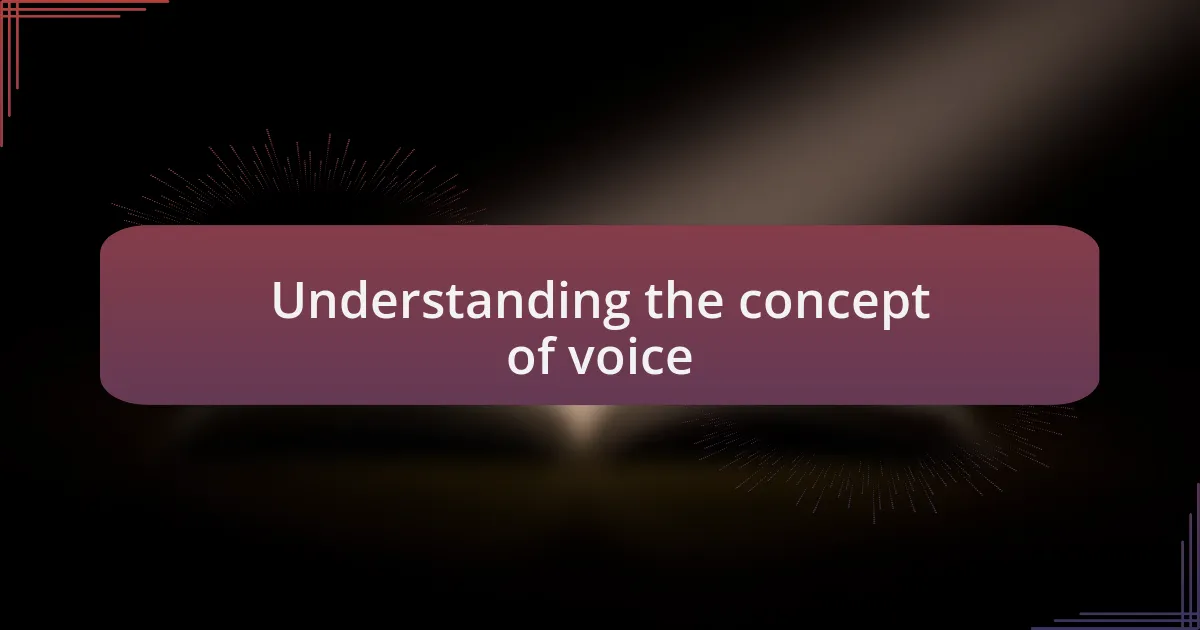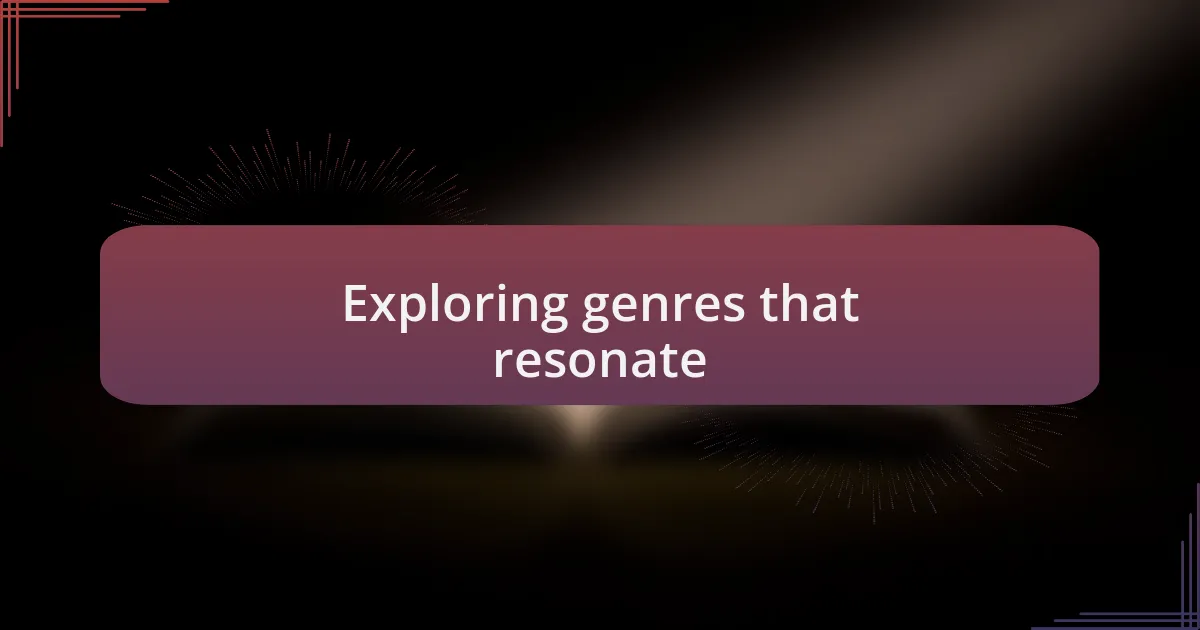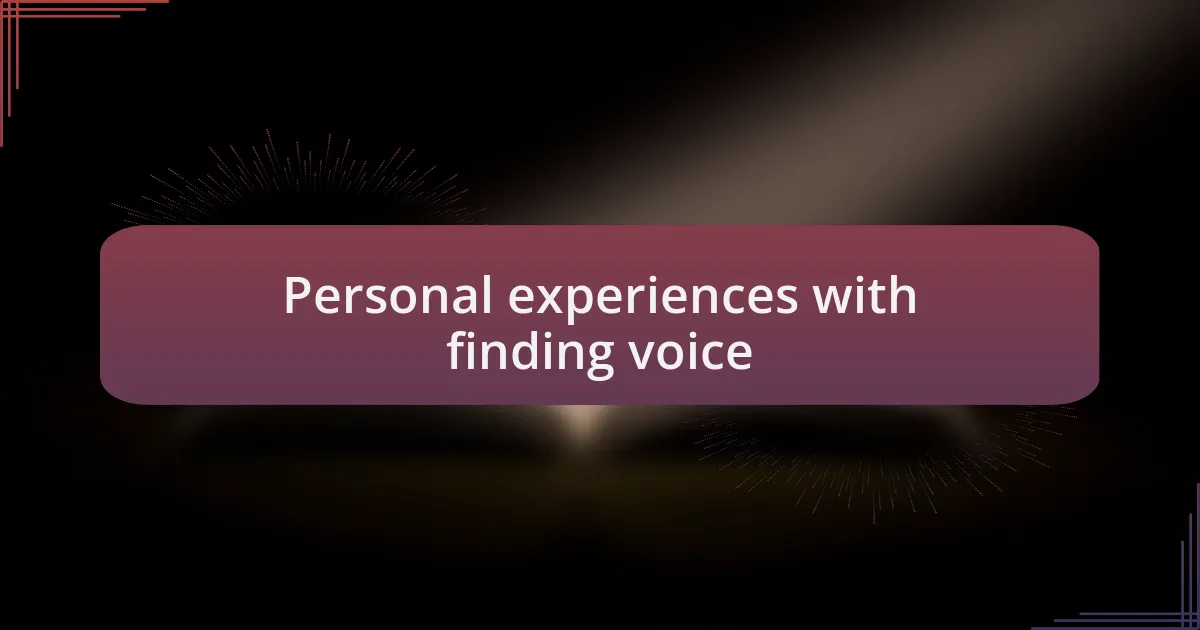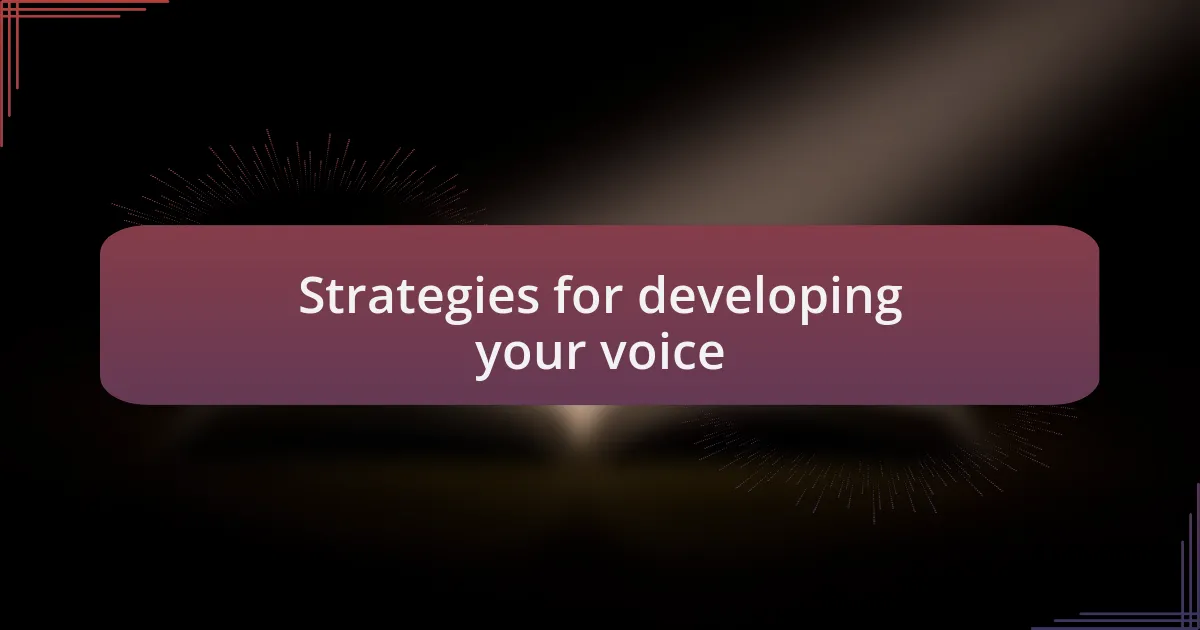Key takeaways:
- Voice reflects personal experiences and authenticity; embracing vulnerability can foster deeper connections with readers.
- Exploring different genres helps develop one’s voice and offers insights into various perspectives, enhancing self-discovery.
- Sharing personal experiences through writing can create meaningful connections, reminding us of the communal nature of storytelling.
- Experimenting with diverse writing styles and engaging with a supportive community can significantly aid in discovering and refining one’s voice.

Understanding the concept of voice
Voice is more than just the words we choose; it reflects our unique perspective and emotional experiences. I remember a time when I struggled to express myself authentically in my writing. I kept wondering, “What do I really want to say?” This internal conflict pushed me to explore my feelings and understand what truly resonated with me.
Your voice is like a fingerprint; it’s distinctly yours, shaped by your life stories and beliefs. When I finally embraced my quirks and imperfections in writing, something clicked. I realized that vulnerability could become a strength, allowing readers to connect with my experiences on a deeper level. Has there been a moment when you felt your true self shine through in your words?
Grasping the concept of voice involves understanding how it can influence others. Each time I shared a piece that felt intensely personal, the response was overwhelming. People reached out, sharing their own stories and perspectives—reminding me that voice can bridge gaps between individuals. What if your voice could be the connection someone else needed?

How books can help you
Books have always been a sanctuary for me, a space where I could escape and discover new aspects of myself. I remember flipping through the pages of a novel that resonated with my struggles. The characters’ journeys mirrored my own, and suddenly, I felt less alone. Isn’t it incredible how a well-told story can make us realize that our thoughts and feelings are shared by others?
Diving into literature not only expands our understanding of different voices but also urges us to develop our own. Every book I devoured sparked a conversation in my mind, challenging me to articulate my beliefs more clearly. Have you ever noticed how reading someone else’s words can inspire you to refine your own? It’s like standing on the shoulders of giants, giving us a better view of our own potential.
Moreover, the act of writing—often inspired by books—becomes a powerful tool for self-discovery. I remember journaling after finishing a particularly impactful memoir, capturing my thoughts and feelings that had been swirling around. That reflection helped me process and express my emotions more authentically. How often do you find that writing leads to deeper insights about your own voice?

Exploring genres that resonate
Exploring different genres has been a transformative part of my journey. I remember picking up my first fantasy novel, feeling the thrill of immersion in entirely new worlds. It was like opening a door to my imagination that had been locked for years. What is it about fantasy that stirs our creativity so vividly?
Sometimes, I’d venture into the depths of historical fiction, where I found pieces of myself reflected in the lives and struggles of characters from different eras. Reading their stories broadened my perspective, helping me understand not just my own experiences but also the experiences of others throughout time. Ever had a moment where a character made you rethink who you are in relation to the world?
As I explored non-fiction, I found clarity and conviction. The insights from thought leaders and storytellers encouraged me to articulate my stance on various issues. I vividly recall a self-help book that prompted me to reconsider my self-worth; it was an enlightening experience that challenged me to rethink my beliefs. How often does a passage resonate deeply, pushing us to confront our assumptions?

Personal experiences with finding voice
Finding my voice has not been an easy journey, often marked by moments of doubt and discovery. I remember attending a local writer’s workshop, feeling both excited and terrified. Sharing my early drafts was daunting; the feedback felt like a mirror reflecting my insecurities back at me. But slowly, with each round of critique, I started to identify patterns in my writing—elements that were uniquely me. Have you ever felt exposed yet exhilarated in sharing your words with others?
In one of my earliest attempts to write poetry, I had a breakthrough while observing a sunset. The colors painted the sky in a way that compelled me to jot down my feelings in a flurry of words. That moment was cathartic; it unlocked emotions I didn’t even know I had. I realized that my voice thrived in these fleeting observations of beauty and raw emotion. Isn’t it fascinating how nature can serve as both a muse and a mirror, reflecting our inner landscapes back to us?
Over time, I began to embrace vulnerability as part of my voice. Writing about personal experiences, including my struggles with anxiety, has allowed me to connect with readers in a profound way. I’ll never forget the response I received from a stranger who told me my words made them feel less alone. It was a poignant reminder that opening up was not just a means of self-expression, but a bridge to others’ hearts. Can sharing our truths really foster community in ways we might not expect?

Strategies for developing your voice
Finding your voice is a personal journey, and one effective strategy I’ve discovered is to explore diverse writing styles. I remember experimenting with journaling, short stories, and even blog posts about daily life. This exploration allowed me to understand the versatility of my expression; incorporating elements from each style helped me uncover aspects of my voice that felt authentic and true to me. Have you ever tried writing in different genres? It can be liberating.
Another method that resonated deeply with me was setting aside dedicated time for free writing. There was a period when I started each day by writing for ten uninterrupted minutes, allowing thoughts to flow without the weight of judgment. This simple act didn’t just clear my mind; it often revealed themes and ideas that were uniquely mine. Have you felt how freeing it can be to write without constraints?
Connecting with a community of like-minded individuals can also significantly impact your voice development. I recall joining an online writing group where we shared and critiqued every other week. Hearing others’ insights on my work taught me not just about writing but about myself. It’s amazing how collaboration and support can shine a light on strengths we sometimes overlook. Could surrounding ourselves with fellow creators help enhance our individual expression?